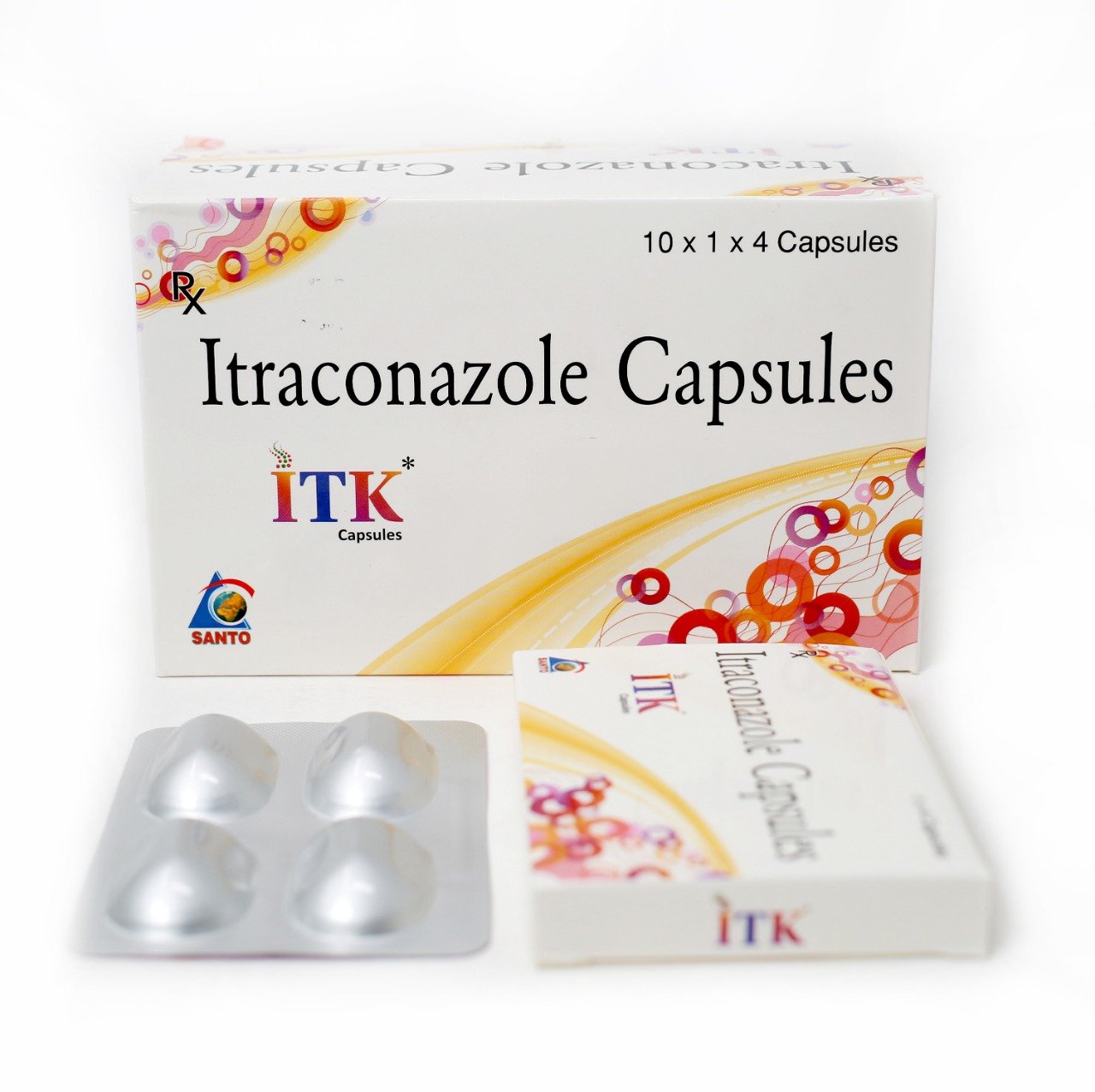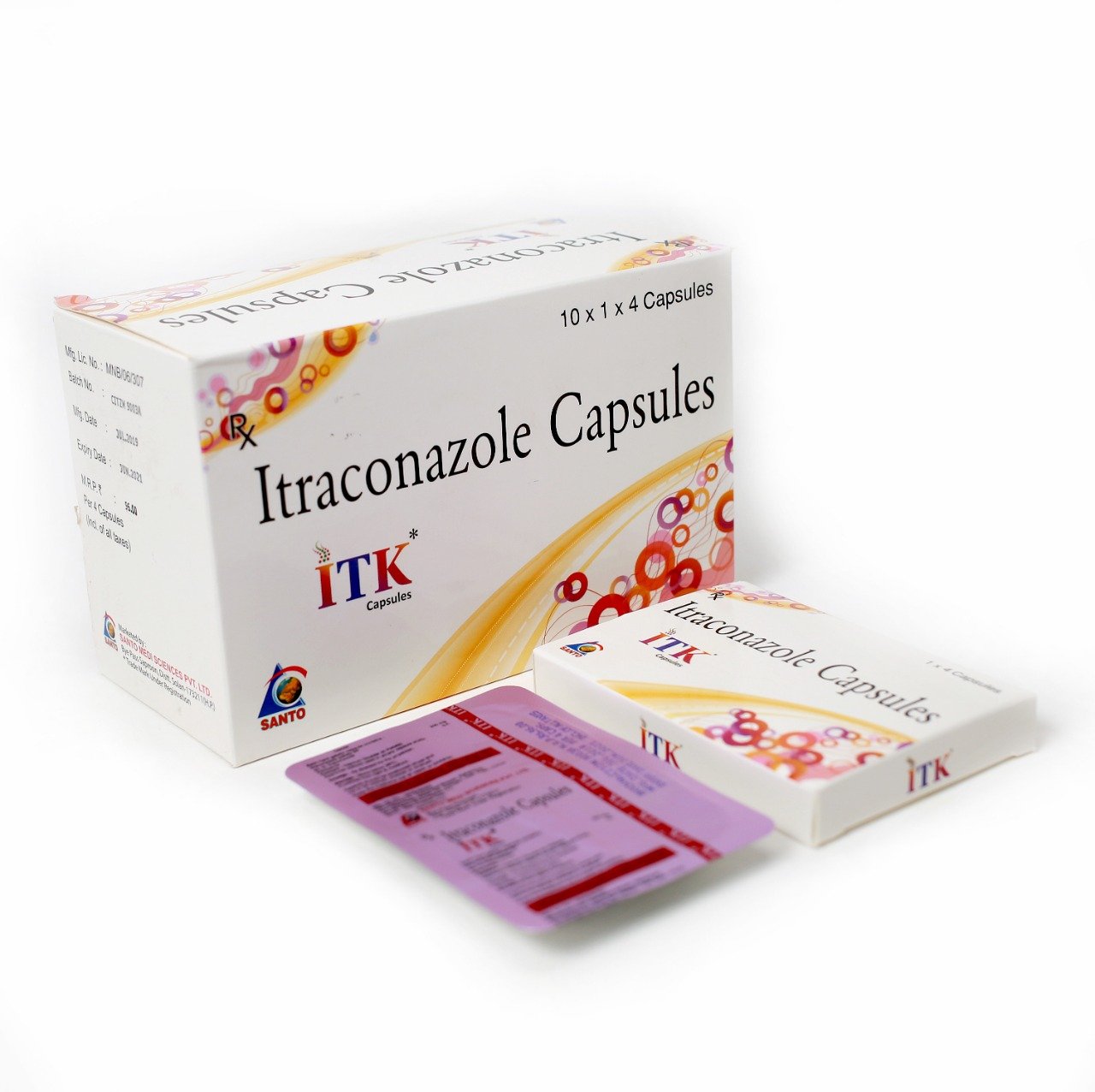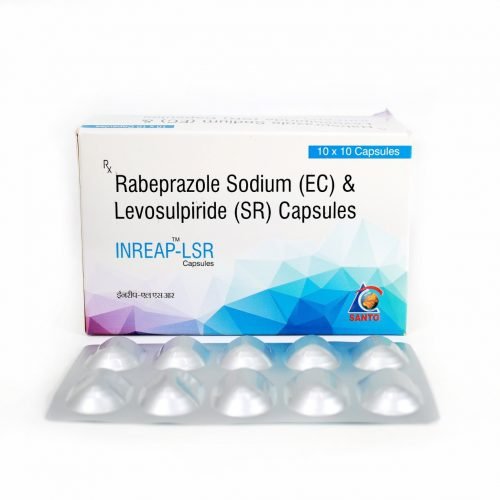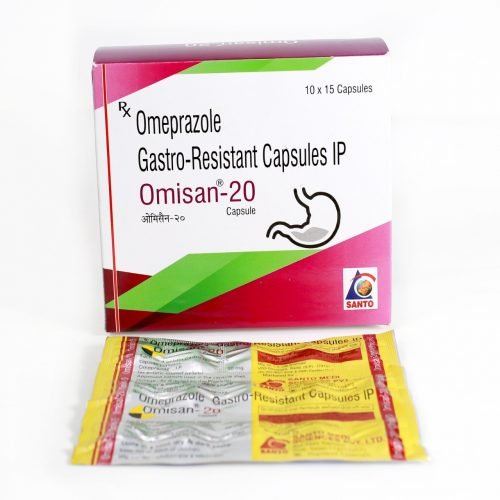- 01792-220191, 09839141955, 06390845955
- SCO No. 2 & 3, Block-B;Office No.-249A; 2nd Floor, Motia Plaza Baddi-173205; Distt. Solan (H.P.)

INREAP- LSR
September 19, 2019
ITK-100
September 19, 2019ITK
| Brad Name | ITK |
| Composition | Itracanazole 200 mg Capsules |
Itracanazole 200 mg Capsules
Itraconazole is an antifungal medication that is used in adults to treat infections caused by fungus. This includes infections in any part of the body including the lungs, mouth or throat, toenails, or fingernails.
Some brands of itraconazole are not for use in treating fungal infections of the fingernails or toenails. Avoid medication errors by using only the brand and strength your doctor prescribes.
Itraconazole may also be used for purposes not listed in this medication guide.
You should not take itraconazole if you have ever had heart failure.
If you have liver or kidney disease, you should not take itraconazole with colchicine, fesoterodine, or solifenacin.
Itraconazole may harm an unborn baby. Avoid getting pregnant while taking itraconazole and for 2 months after your last dose.
Stop using itraconazole and call your doctor at once if you have signs of congestive heart failure: feeling tired or short of breath, cough with mucus, fast heartbeats, swelling, rapid weight gain, or sleep problems.
Life-threatening side effects may occur if you take itraconazole with certain other drugs. Tell your doctor about all your current medicines and any you start or stop using.
Dosage
-
Usual Adult Dose for:
- Blastomycosis
- Histoplasmosis
- Aspergillosis – Aspergilloma
- Aspergillosis – Invasive
- Oral Thrush
- Esophageal Candidiasis
- Onychomycosis – Toenail
- Onychomycosis – Fingernail
- Coccidioidomycosis
- Sporotrichosis
- Cryptococcosis
- Cryptococcal Meningitis – Immunosuppressed Host
- Vaginal Candidiasis
- Microsporidiosis
- Systemic Fungal Infection
- Fungal Infection Prophylaxis
- Tinea Versicolor
- Paracoccidioidomycosis
Usual Pediatric Dose for:
- Blastomycosis
- Histoplasmosis
- Oral Thrush
- Esophageal Candidiasis
- Coccidioidomycosis
- Cryptococcosis
- Cryptococcal Meningitis – Immunosuppressed Host
- Vaginal Candidiasis
- Microsporidiosis
- Sporotrichosis
- Tinea Capitis
Additional dosage information:
- Renal Dose Adjustments
- Liver Dose Adjustments
- Dose Adjustments
- Precautions
- Dialysis
- Other Comments
Precautions
Before taking itraconazole, tell your doctor or pharmacist if you are allergic to it; or to other azole antifungals (such as ketoconazole); or if you have any other allergies. This product may contain inactive ingredients, which can cause allergic reactions or other problems. Talk to your pharmacist for more details.
Before using this medication, tell your doctor or pharmacist your medical history, especially of: liver disease, kidney disease, heart disease (such as heart failure, coronary artery disease, heart valve disease), lung disease (such as chronic obstructive pulmonary disease-COPD), decreased or no stomach acid (achlorhydria).
This drug may make you dizzy. Alcohol or marijuana (cannabis) can make you more dizzy. Do not drive, use machinery, or do anything that needs alertness until you can do it safely. Avoid alcoholic beverages. Talk to your doctor if you are using marijuana (cannabis). Alcohol may also increase the risk of serious liver problems.
Side effects
Nausea/vomiting, diarrhea, headache, stomach upset, or dizziness may occur. If any of these effects last or get worse, tell your doctor or pharmacist promptly.
Remember that your doctor has prescribed this medication because he or she has judged that the benefit to you is greater than the risk of side effects. Many people using this medication do not have serious side effects.
Tell your doctor right away if you have any serious side effects, including: numbness/tingling of arms/legs, hearing loss, mental/mood changes (such as depression).
Itraconazole has rarely caused very serious (possibly fatal) liver disease. Tell your doctor right away if you develop symptoms of liver disease, such as: nausea/vomiting that doesn’t stop, loss of appetite, stomach/abdominal pain, yellowing eyes/skin, dark urine.
Drug interaction
Drug interactions may change how your medications work or increase your risk for serious side effects. This document does not contain all possible drug interactions. Keep a list of all the products you use (including prescription/nonprescription drugs and herbal products) and share it with your doctor and pharmacist. Do not start, stop, or change the dosage of any medicines without your doctor’s approval.
Itraconazole interacts with many medications. See also Warning section.
Other medications can affect the removal of itraconazole from your body, which may affect how itraconazole works. Examples include efavirenz, isoniazid, nevirapine, rifamycins (such as rifabutin), certain drugs used to treat seizures (such as phenytoin), among others.






